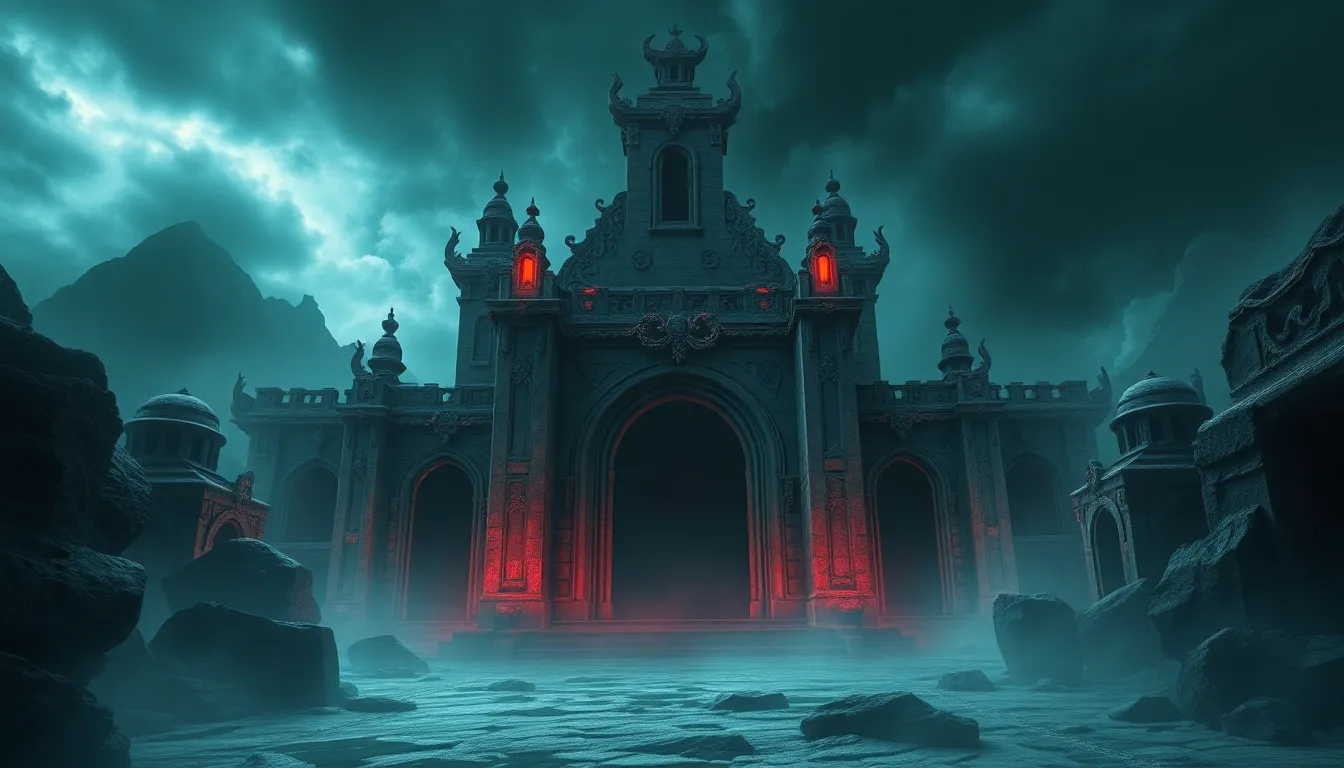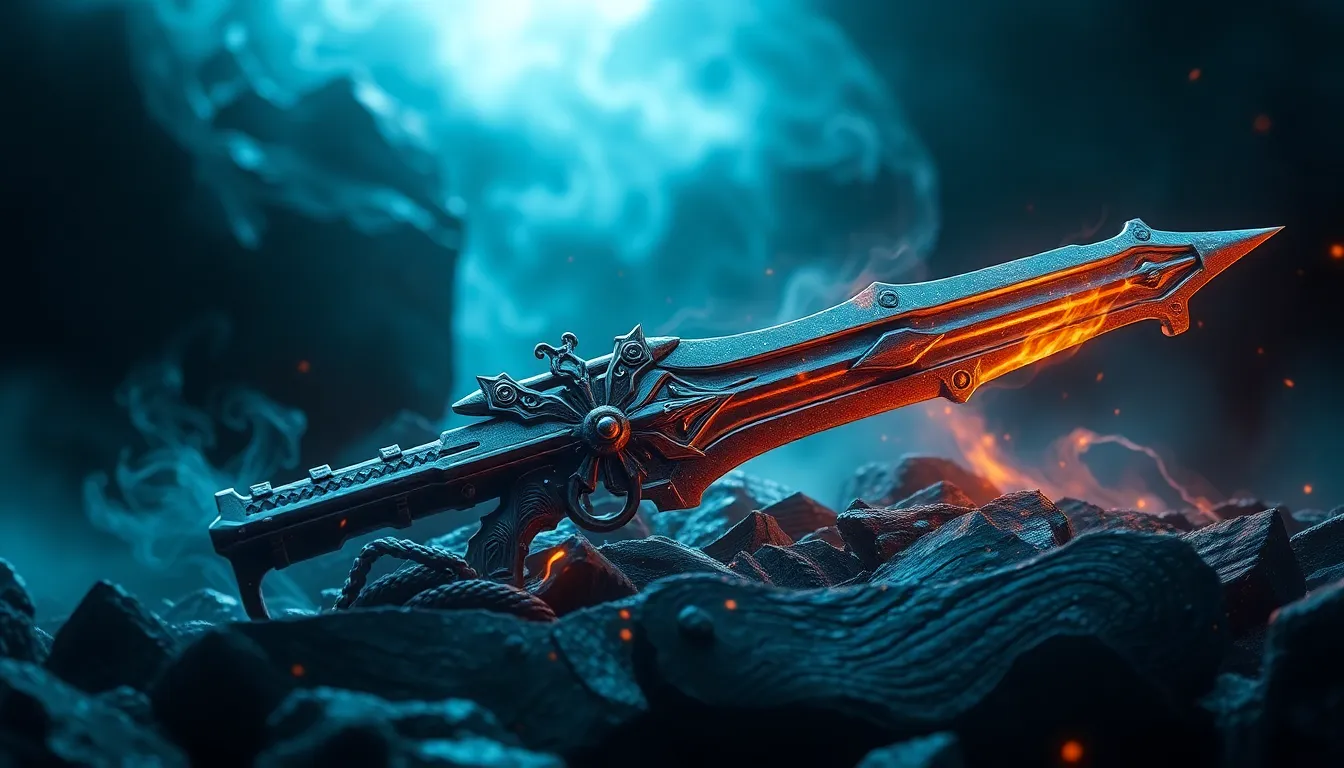Underworld Myths: The Dark Tales That Shape Our Beliefs
Introduction to Underworld Myths
Underworld myths are narratives that explore the realms beneath the earth, often associated with death, the afterlife, and the subconscious fears of humanity. These tales hold significant cultural importance, shaping beliefs about morality, justice, and the nature of existence. Through the ages, underworld myths have influenced art, literature, and religious practices, providing a framework for understanding the human experience and the mysteries of life and death.
Historical Perspectives on the Underworld
Historically, different civilizations have developed unique interpretations of the underworld, reflecting their beliefs and values. The underworld often serves as a mirror to the culture that conceived it.
- Mesopotamian Beliefs: The underworld, known as Kur, was a shadowy and dreary place where souls resided after death, ruled by the goddess Ereshkigal and her consort, Nergal. The Mesopotamians believed that all souls, regardless of their actions in life, ended up in Kur.
- Egyptian Underworld: In contrast, the Egyptian underworld, represented by Duat, was a complex realm where the soul faced judgment. Osiris, the god of the afterlife, played a crucial role in determining the fate of souls, weighing their hearts against the feather of Ma’at to assess their morality.
- Greek Underworld: The Greek underworld, ruled by Hades, was divided into various regions including Elysium for the virtuous and Tartarus for the wicked. The Greeks explored themes of heroism and redemption, where the journey to the underworld was often fraught with challenges.
Key Figures of the Underworld in Mythology
Prominent deities and figures associated with the underworld serve as embodiments of its themes and narratives.
- Hades: In Greek mythology, Hades is the god of the underworld, often depicted as a stern but just ruler. He oversees the souls of the deceased and maintains order in the afterlife.
- Osiris: The Egyptian god of the afterlife, Osiris symbolizes resurrection and eternal life. His myth involves death and rebirth, highlighting the cyclical nature of existence.
- Yama: In Hindu mythology, Yama is the god of death and the ruler of the underworld, known as Naraka. He is responsible for judging the souls of the deceased and guiding them to their next fate.
Themes and Motifs in Underworld Myths
Underworld myths are rich with recurring themes and motifs that delve into the human condition.
- Death: Central to underworld narratives, death signifies the transition from life to the afterlife, prompting reflections on mortality.
- Judgment: Many myths feature a judgment scene where the soul’s worth is assessed, embodying the moral principles of the culture.
- Rebirth: The theme of rebirth signifies hope and transformation, suggesting that death is not the end but a new beginning.
Recurring motifs such as the journey to the underworld, trials faced by souls, and quests for redemption emphasize the struggles inherent in the human experience.
Underworld Myths Across Cultures
Underworld narratives vary widely across cultures, influenced by geography, environment, and societal values.
- Norse Mythology: Hel, the goddess of the Norse underworld, rules over a realm where those who did not die a heroic death reside. This reflects the Norse valorization of bravery and honor.
- Native American Beliefs: Various tribes have distinct views on the afterlife, often intertwining their myths with nature and the cycles of life, emphasizing harmony with the earth.
- Asian Myths: In many Asian cultures, such as in Buddhism, the underworld is a transient state where souls undergo trials before rebirth, reflecting the belief in karma and the cyclical nature of life.
The Psychological Impact of Underworld Myths
Underworld myths resonate deeply with human psychology, addressing fundamental fears and existential questions. They allow individuals to confront their anxieties about death and the unknown.
- Fears of Death: These tales offer narratives that help people process the inevitability of death, providing a framework for understanding what lies beyond.
- Moral Framework: Underworld myths often explore themes of morality and ethics, guiding individuals in their actions and decisions.
Modern Interpretations and Adaptations
In contemporary culture, underworld myths are reimagined in literature, film, and art, reflecting ongoing societal concerns.
- Literature: Works like Dante’s “Inferno” and Neil Gaiman’s “American Gods” draw heavily from traditional underworld narratives, exploring themes of justice and identity.
- Film: Movies such as “The Lion King” and “Coco” incorporate underworld themes, emphasizing the importance of family, memory, and legacy.
The Underworld in Religion and Spirituality
The connection between underworld myths and religious beliefs is profound, often influencing rituals and spiritual practices.
- Rituals: Many cultures perform rituals to honor the dead, such as the Day of the Dead in Mexican culture, which celebrates and remembers loved ones in the afterlife.
- Spiritual Practices: Beliefs about the afterlife shape spiritual practices, influencing how communities mourn and celebrate life.
The Underworld as a Symbol of Transformation
Underworld myths frequently symbolize personal and societal transformation. They reflect the journey through adversity toward renewal and change.
- Case Studies: The myth of Persephone illustrates seasonal change and personal growth, while the stories of heroes like Orpheus highlight the transformative power of love and loss.
Conclusion: The Enduring Legacy of Underworld Myths
Underworld myths remain relevant in modern society, offering insights into human beliefs and values. They continue to shape our understanding of life, death, morality, and transformation, serving as a lens through which we can explore the complexities of the human experience. As we navigate our own journeys, the dark tales of the underworld remind us of the universal themes that connect us all.




